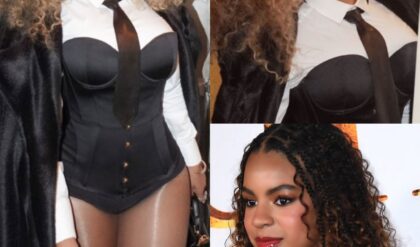
Recently, the first teaser trailer for MCU’s ‘Agatha All Along’ debuted, promising a blend of mystery, magic, and intense drama for the upcoming installment in the MCU.
The series will center around Agatha Harkness as she strives to reclaim her magical abilities after being imprisoned by the Scarlet Witch. Actor Joe Locke recently hinted at numerous details about the show, including confirmation that his character Billy Kaplan will be portrayed as gay, with a focus on tasteful representation.
The backlash began promptly, with many fans drawing comparisons to Star Wars’ ‘The Acolyte,’ which was described by its showrunner as “the gayest” Star Wars series yet.
Fans express concern that ideology may overshadow storytelling once more, fearing that diversity, equity, and inclusion (DEI) themes and sexual orientation will be forcefully integrated into the narrative, which they find fundamentally problematic.
Joe Locke confirms his character in ‘AGATHA ALL ALONG’ is gay:
“The way it’s explored in the show is very truthful and very positive. His sexuality is just one part of the character.”
(Via: https://t.co/OXgtlrksSw) pic.twitter.com/9YQOQF3xLl
— The Hollywood Handle (@HollywoodHandle) July 16, 2024
And just like that I’m not watching anymore
— Sniper (@sniperdagoat12) July 16, 2024
we wont be watching
— Sparkle (@ssparkle05) July 16, 2024
I hope people will read this and be sensible enough to understand that this is true to his comic character as well.
— Original Orange Bird (@ogorangebird) July 16, 2024
Welcome to the MCU’s The Acolyte.
— Worth it or Woke? (reviews) (@worthitorwoke) July 16, 2024
There are two significant distinctions when comparing ‘The Acolyte’ and ‘Agatha All Along.’ ‘The Acolyte’ is an original series, albeit drawing some inspiration from the Expanded Universe. Headland created it largely from scratch, with characters not directly based on existing ones. While I don’t believe ‘The Acolyte’ was overly woke, it did face criticism, likely amplified for publicity.
‘Agatha All Along’ is also original, not tied to any specific comic storyline like for example, ‘Secret Invasion,’ but its characters clearly draw inspiration from established sources.
Billy Kaplan, known in the comics as Wiccan, is a prominent character recognized for his immense magical abilities and as the reincarnation of Wanda’s son. In the comics, Billy has been openly gay for years, with his relationship with Hulkling being a significant and well-established aspect of his character.
Changing Billy Kaplan to a straight character for the show would be just as disrespectful as altering a straight character to fit an agenda. Portraying Billy Kaplan as gay is faithful to the comics, and ‘Agatha All Along’ appears to be targeted at specific demographics, evident in its aesthetics, themes, and the musical format.





